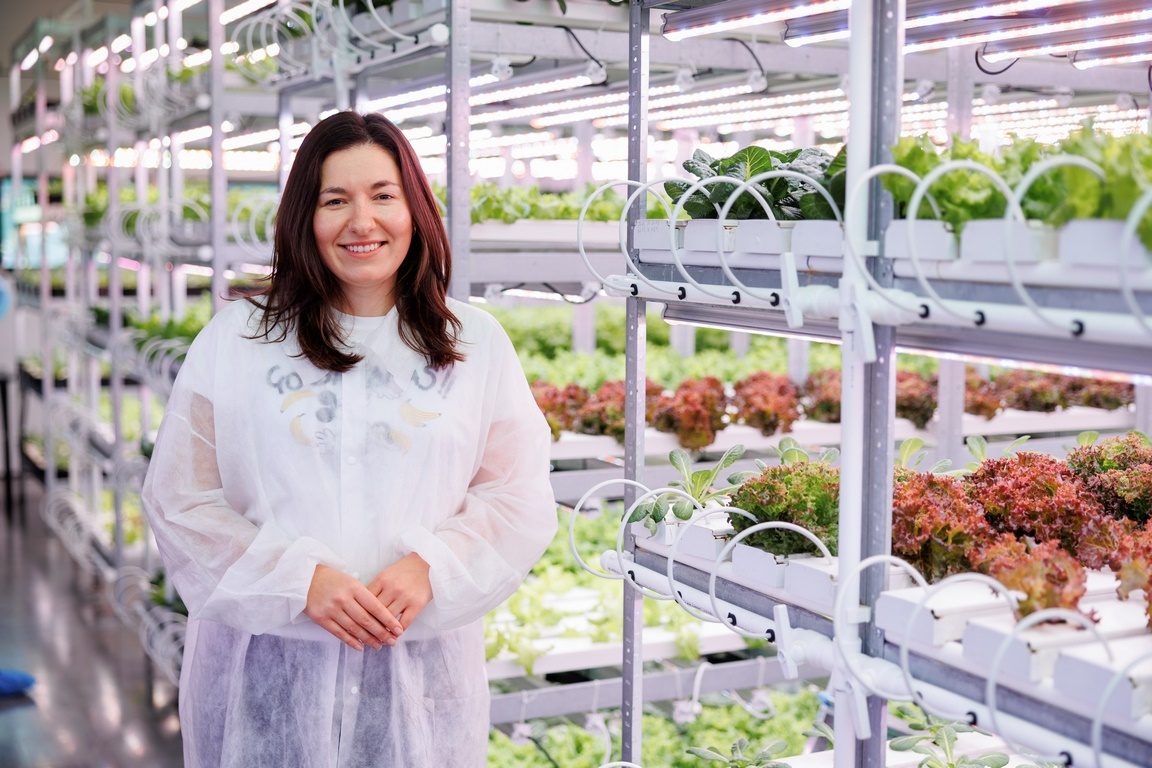
Photo: UNDP Moldova
In Eastern Europe and Central Asia, countries are feeling the burden of the climate crisis more acutely than ever. As climate change impacts such as droughts, changes in precipitation and floods become more frequent and severe, they affect food production, hydropower generation and critical infrastructure. The cost of the ensuing damage is expected to increase dramatically by 2050.
As a result, rural and urban populations across the entire region are likely to become more vulnerable. Existing socioeconomic disparities will heighten risks, with poorer households more exposed to climate change impacts and less able to recover and reconstruct in the aftermath.
Yet the region also holds several levers for meaningful climate action, from reducing methane leaks and leveraging the role of ecosystems in mitigation and adaptation efforts to aligning climate ambition with economic reforms. As countries prepare and submit their revised national climate plans, or Nationally Determined Contributions (NDCs), they show how climate ambition can lead to real benefits for everyone, including greener jobs, better lives and more resilient communities.
Driving climate ambition for a better future in Ukraine
In Ukraine, the devastating consequences of the war continue to affect every sector of society and undermine critical infrastructure, placing immense strain on the country’s climate efforts. Two thirds of Ukraine’s power generation capacity is located in territories occupied by Russia. Even more concerning, more than 40 percent of the country’s solar and wind power energy capacity is also installed in these areas.
Despite major disruptions, Ukraine has remained committed to pursuing its climate goals. In 2024, the country adopted a new climate law – On the Basic Principles of the State Climate Policy – which sets the direction for low-carbon development and climate neutrality by 2050. To support this transition, in its proposed revised NDC, Ukraine plans to cut greenhouse gas (GHG) emissions by between 68 and 73 percent and phase out coal power by 2035. As part of this effort, the government has also been developing its long-term climate vision and updating its Long-term Low-emission Development Strategy to establish a cross-sectoral framework for climate neutrality, with support from UNDP.
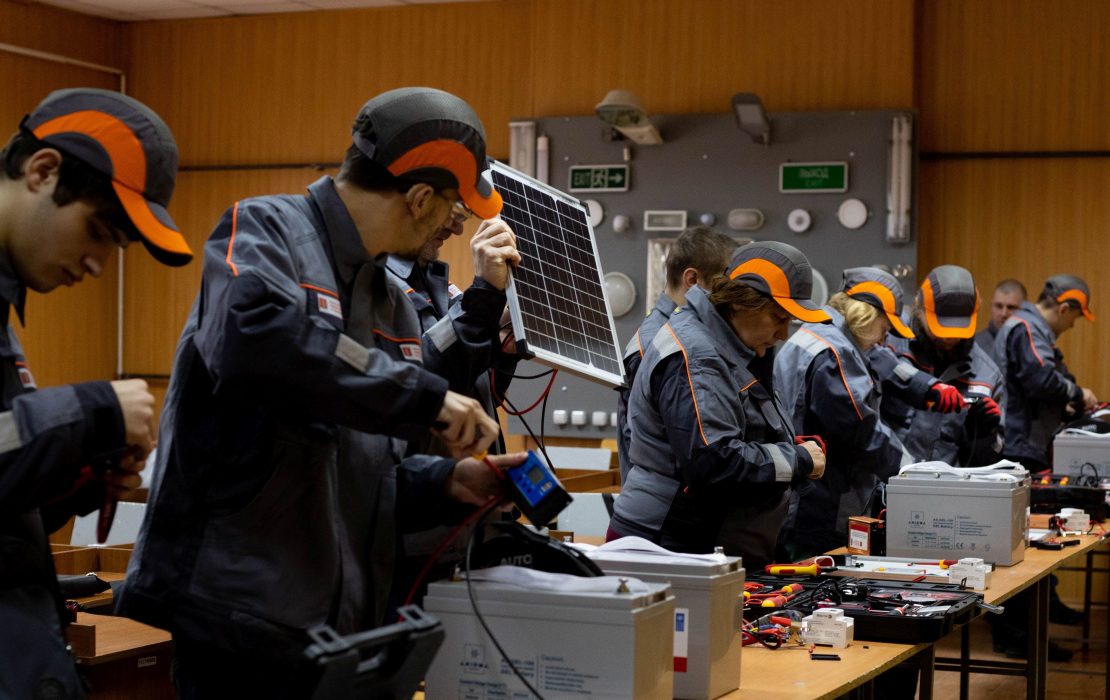
Electricians in Mykolaiv participate in a hands-on training course on renewable energy systems. Photo: UNDP Ukraine
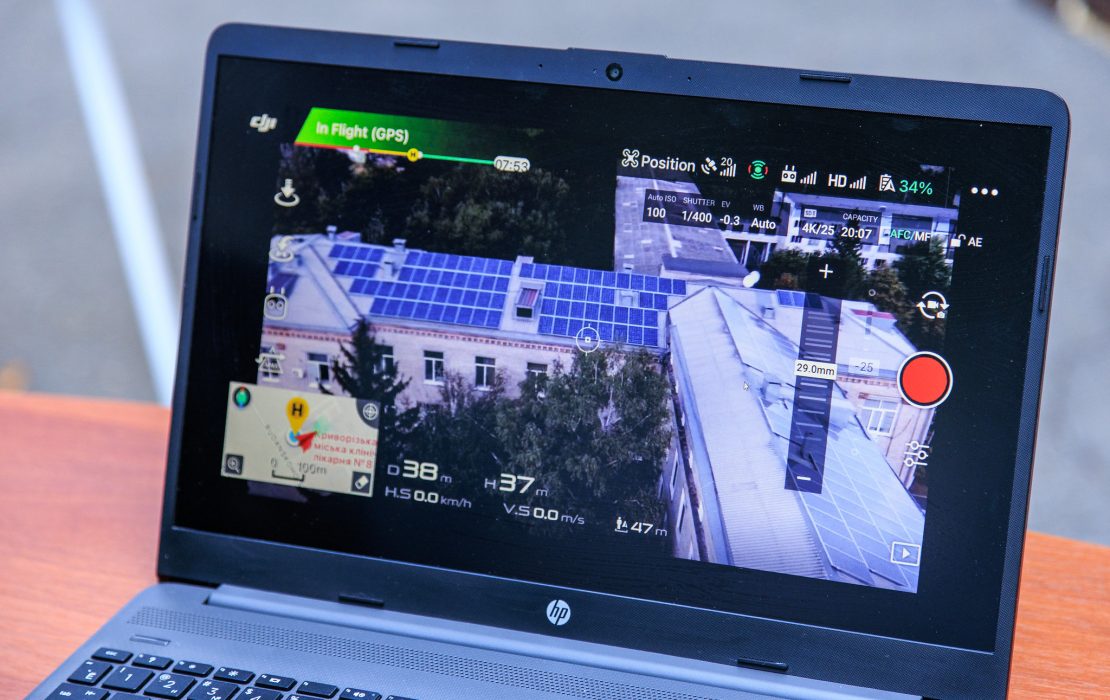
Solar panels installed at Kryvyi Rih Hospital No. 16 provide vital power supply and prevent power cuts. Photo: Oleksii Ushakov / UNDP Ukraine
Ukraine’s experience underscores the challenges of maintaining a stable and reliable energy supply during wartime. Yet it also demonstrates remarkable resilience and intention in pursuing climate ambition that aligns with the European Union (EU) Green Deal and Ukraine’s EU accession trajectory. This determination sends a powerful message that progress toward a greener, more sustainable future is possible, even under the most challenging circumstances.
Advancing mitigation with solar energy and low-carbon homes in Uzbekistan
As Central Asia’s most populous country and largest economy, Uzbekistan’s climate action is critical to building a sustainable future in the region. The country has committed to transition from natural gas to renewable energy and decarbonize its energy-intensive industries that are highly dependent on fossil fuels. The rollout of solar power is already improving electricity access for local communities, while also creating thousands of new jobs.
Indeed, in remote areas, where the lack of qualified solar energy technicians has hindered the scale up and maintenance of solar panels installations, thousands of electricians and plumbers are now receiving practical training in “Ishga marhamat” (“Welcome to work”) monocentres. Conducted in collaboration with UNDP and one of the leading vendors in the sector, the trainings help workers gain theoretical knowledge and practical skills related to the installation and maintenance of solar panels and solar water heaters.
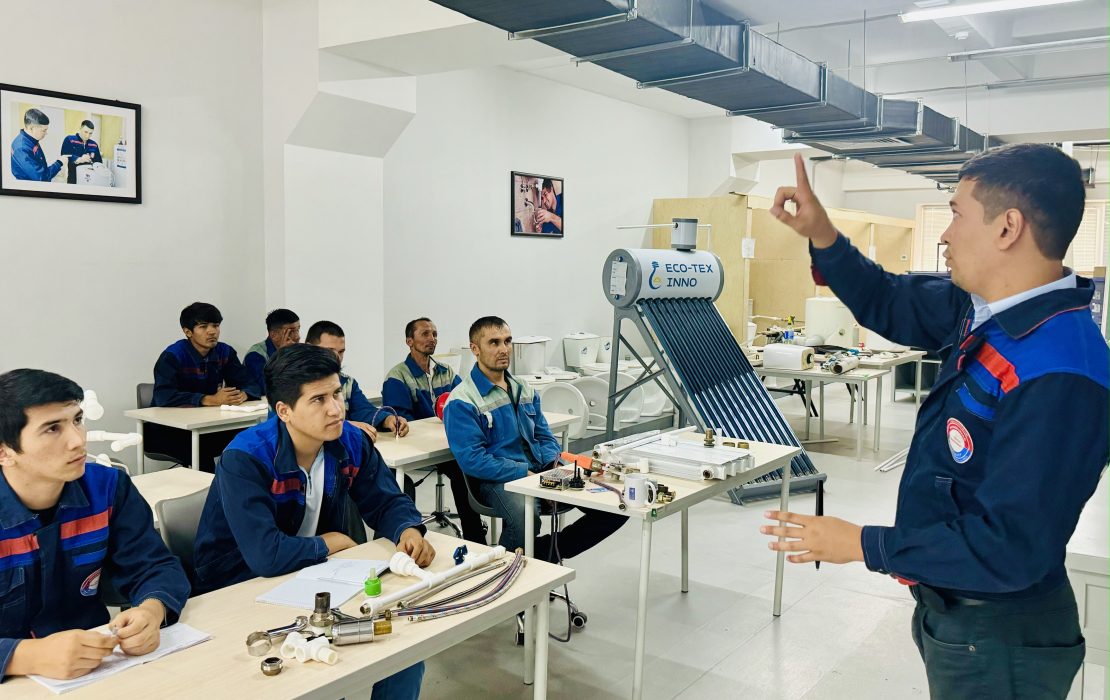
Electricians and plumbers taking part in a training on renewable energy installations in a monocenter. Photo: UNDP Uzbekistan
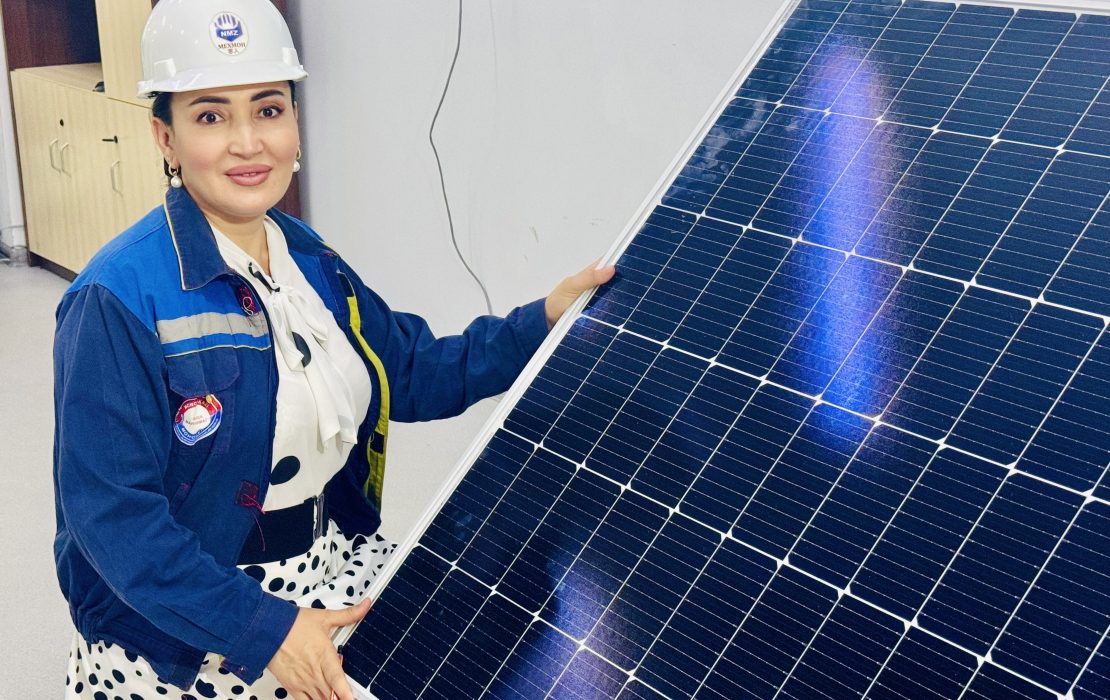
Women engineers in Uzbekistan help drive the country’s transition to renewable energy. Photo: UNDP Uzbekistan.
Uzbekistan has also advanced affordable, low-carbon housing to improve rural living conditions, with support from UNDP. By developing energy-efficient prototype house designs and running 180 energy audits showcasing their benefits, the country successfully established a scalable model for sustainable housing that aligns with its national climate goals. Additionally, seven new building codes further support the adoption of low-carbon homes. More than 6,770 rural residents now have access to modern, energy-efficient homes through a green mortgage, while other households received direct support via the Green Loan Financial Mechanism.
Investing in adaptation and reducing forest fire risks in Georgia
In Georgia, where forests cover about 44.5 percent of the land, climate change is accelerating forest degradation. Rising temperatures, droughts and extreme weather events have severely damaged forest ecosystems, a situation further aggravated by forest fires, which increased from about 12 incidents in 2012 to 48 in 2022, affecting around five times more land.
This trend is an emerging challenge for Georgia and threatens its goals of increasing forest carbon capture by 15 percent and cutting GHG emissions by more than 50 percent by 2035. The country is now working to reinforce early warning systems and climate-related disaster preparedness and response.
Forest fire management trainings help ensure effective emergency response in Georgia. Photo: Vladimir Valishvili / UNDP Georgia
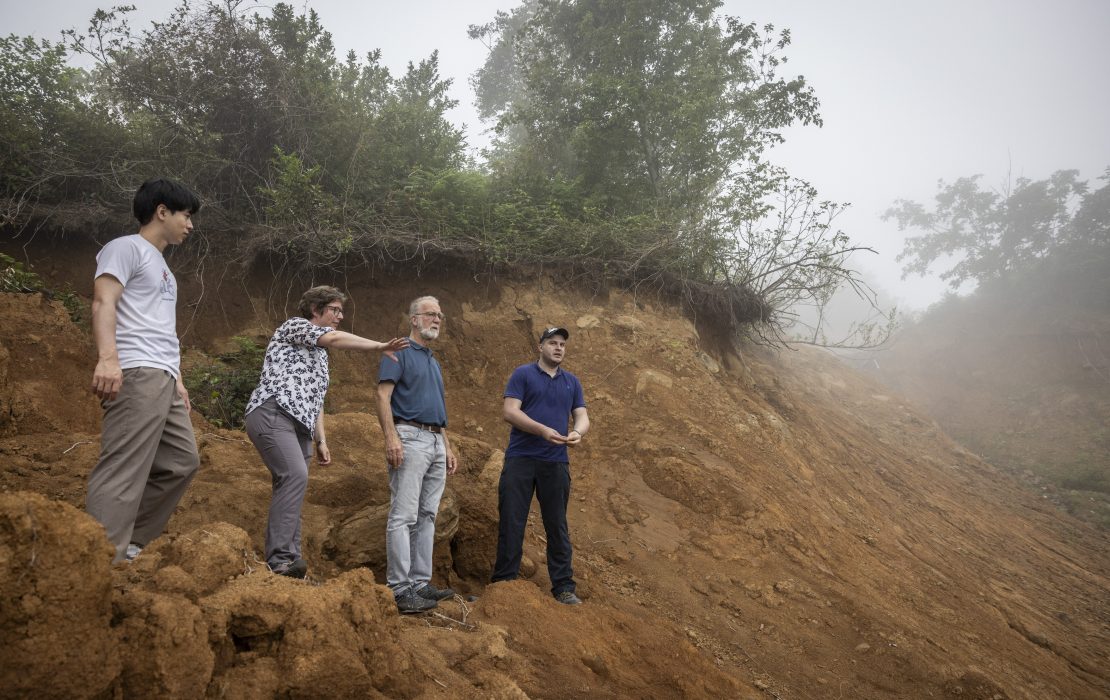
Swiss and Georgian experts join forces in forested mountain areas to assess landslide risks and boost community preparedness. Photo: Irakli Dzneladze / UNDP Georgia
UNDP is supporting local authorities on the ground to improve prevention and rapid response. In Dusheti, eastern Georgia, foresters received essential fire equipment – including safety gear, fire extinguishers and quad bikes – and training from Czech experts on how to use it. In total, 35 Georgian rangers and firefighters completed practical wildfire prevention and management training with field simulations. Rangers in the Aragvi Protected Landscape and Pshav-Khevsureti National Park also received first aid kits, portable water tanks and a utility vehicle to improve preparedness. In Mtskheta, a new Business Service Yard that helps reduce risks to people and property from wildfires has also been equipped with firefighting tools, a power generator and all-terrain vehicles. The facility has also been instrumental in training foresters and rolling-out an awareness campaign on forest protection.
Embarking on a just transition in Serbia
In its newly submitted NDC 3.0, revised with support from UNDP, Serbia outlined its vision for climate-resilient development over the next five years, highlighting the importance of a just and inclusive green transition. UNDP is helping the country embark on this transition, including through initiatives that support vulnerable populations such as people whose livelihoods depend on the fossil fuels sector and people with disabilities.
Households who depend on jobs in the fossil fuels sector are at risk of losing their livelihoods once countries transition to sustainable energy. As Serbia moves away from coal mining, the Senjski Rudnik eco-museum, built on the site of one of the country’s oldest coal mine, has become a symbol of a just transition. By combining heritage preservation, recycling of demolished structures and social inclusion measures, the museum has created a sustainable environment that benefits local communities. It now employs women who used to work as miners, helping them balance work and family responsibilities with transport services and flexible working hours. It also supports former women miners to access re-skilling and upskilling trainings as well as entrepreneurship trainings together with other women from the mining community.
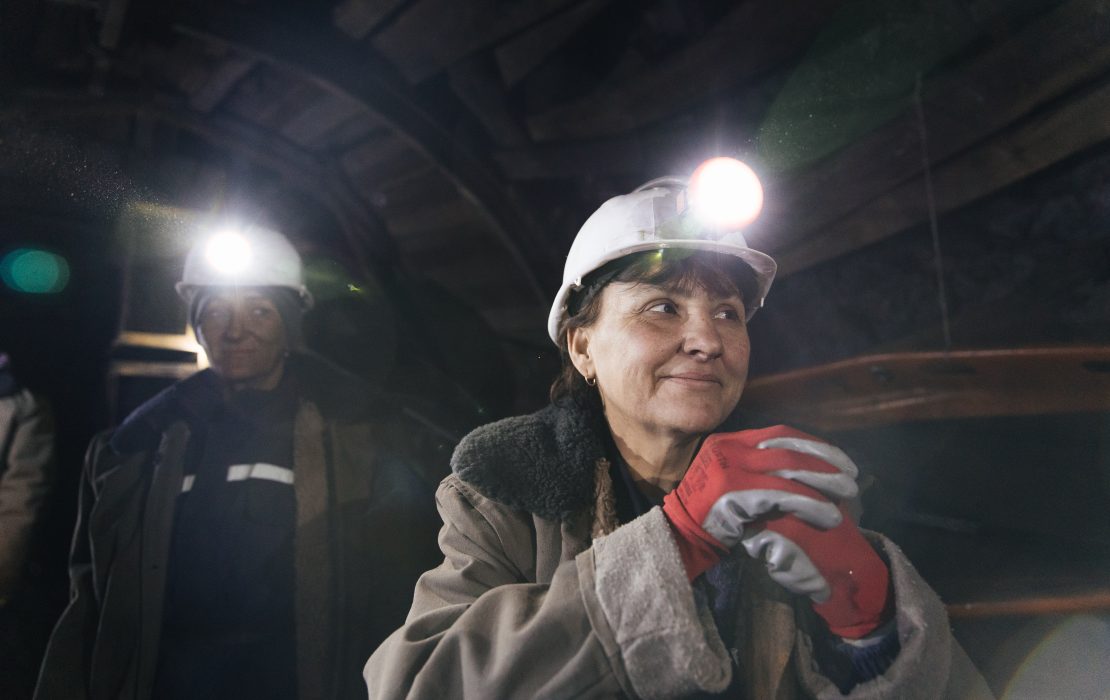
Women miners in Senjski Rudnik received grants that support career transition and the creation of green jobs in the area. Photo: UNDP Serbia
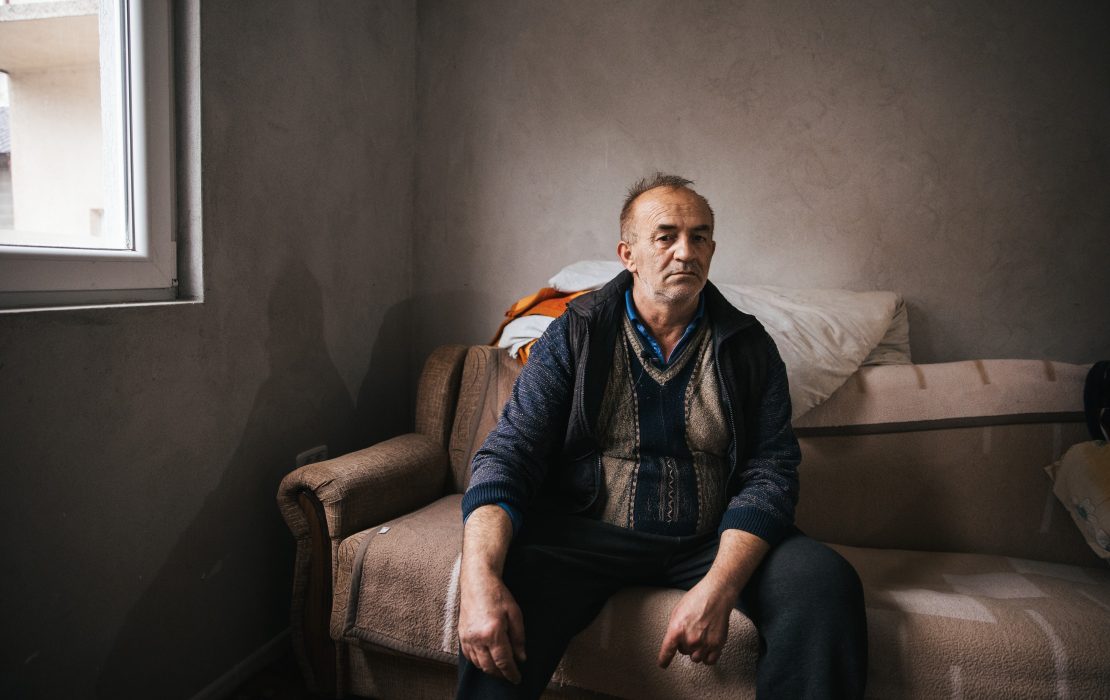
"It is an incredible feeling to finally have our own peace. Our home is warm, we use less firewood, and life is improving." says Rifat. Photo: UNDP Serbia
People with disabilities are one of the most marginalized groups in Serbia, with many living on the edge of poverty. As such, they are vulnerable to energy poverty and the rising cost of living. Public-private collaborations can be a way to support these at-risk populations. In Novi Pazar in southwestern Serbia, Rifat, a man with a disability, and his brother Feriz were able to add major energy efficiency upgrades to their home with support from a local company. The cost savings created by energy efficiency measures can help boost the resilience of similar vulnerable households across the country.
Unlocking big change with small grants in rural Moldova
Moldova is firmly committed to the goals of the Paris Agreement. This commitment is reflected in its NDC 3.0, which introduces the country’s goal of achieving climate neutrality by 2050 and a 75 percent reduction in GHG emissions by 2035.
To help businesses move away from fossil fuels, UNDP supports local entrepreneurs with small grants for sustainable energy solutions and climate-resilient business practices. This initiative helps advance agricultural modernization and reduce GHG emissions while also strengthening livelihoods.
Aurelia Balan and her husband run four greenhouses that provide fresh vegetable produce almost year-round. By switching from coal heating to solar panels and air pumps, they managed to reduce energy costs by 30 percent and adopt more sustainable farming practices.
Similarly, in Condrătești, Maria Caraman, a mother of five who runs a poultry business, installed an energy-efficient incubator which allowed her to cut electricity costs in half and double productivity, increasing her income while raising chickens in an eco-friendly way.
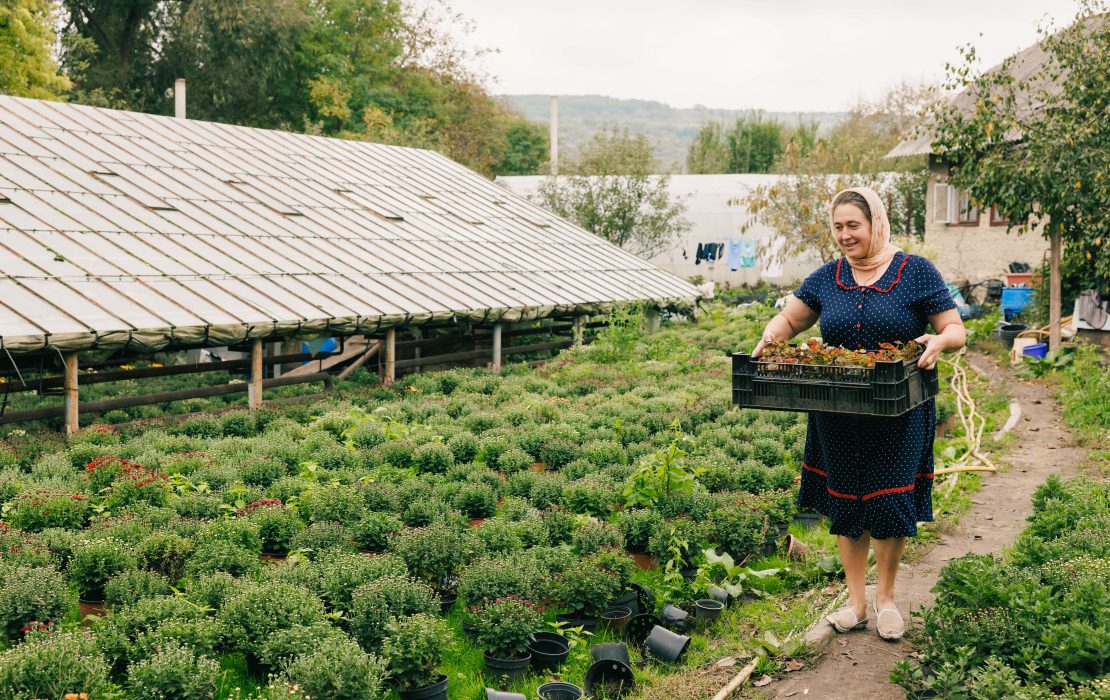
Aurelia replaced a coal-based heating system with photovoltaic panels and air pumps at her farm. Photo: UNDP Moldova
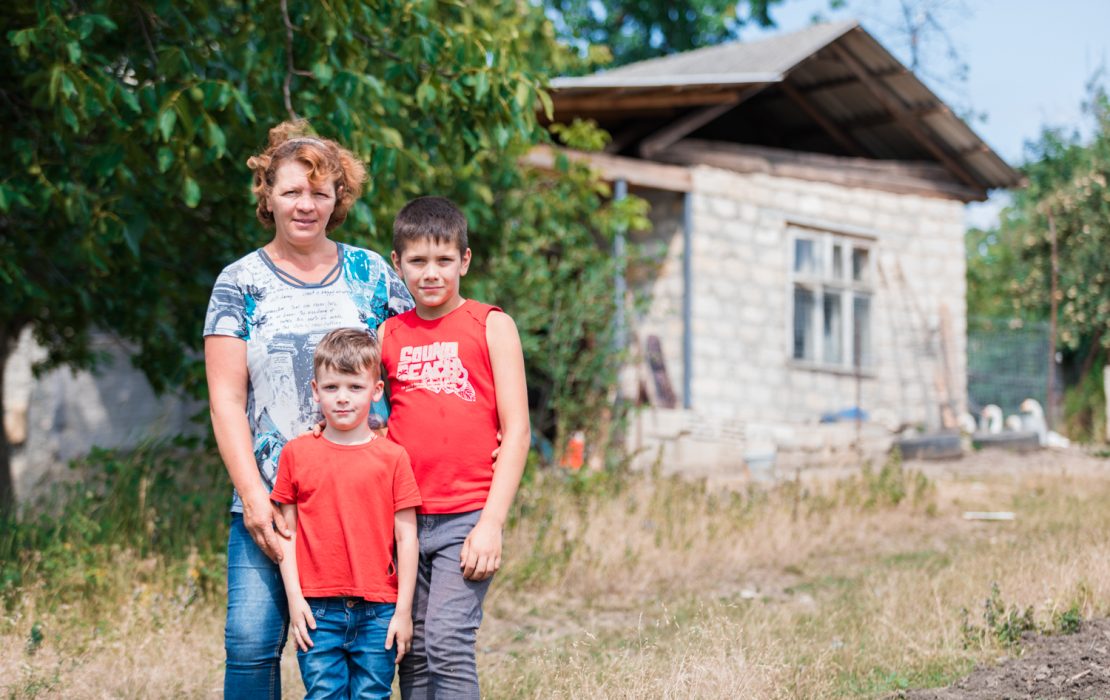
With sustainable energy, Maria made her family business more profitable and ready for her children to expand in the future. Photo: UNDP Moldova
*
The initiatives in this photo story were implemented under UNDP’s Climate Promise by the Pledge to Impact Programme.
Delivered in collaboration with a wide variety of partners, Pledge to Impact has supported over 120 countries to enhance and implement Nationally Determined Contributions (NDCs) under the Paris Agreement. Pledge to Impact is generously supported by the governments of Germany, Japan, United Kingdom, Sweden, Belgium, Spain, Iceland, the Netherlands, Portugal and other UNDP core contributors. This programme underpins UNDP’s contribution to the NDC Partnership.